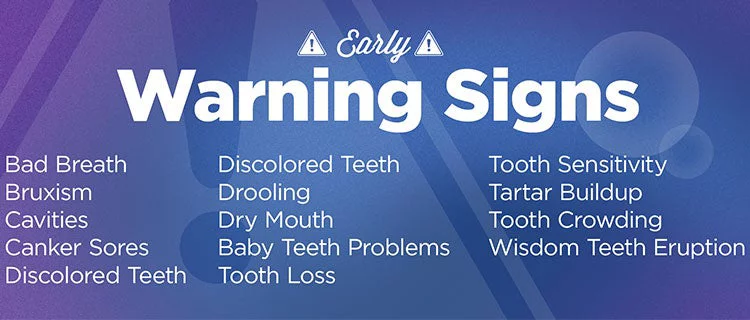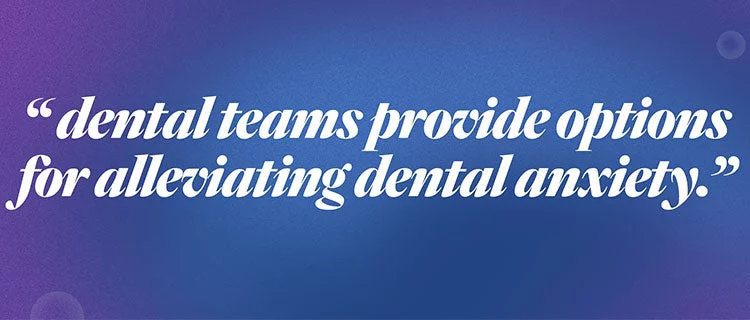- Bad Breath: Bad breath, also known as Halitosis, indicates a few dental problems. The common causes are poor oral hygiene, gum disease, and smoking. Less known detail, dry mouth from some medications can cause bad breath. If none of these apply but you still have bad breath, it could suggest other issues like digestive problems or diabetes.
- Bruxism: Grinding teeth, or bruxism, is not uncommon for individuals with intellectual or physical disabilities. While it generally happens at night, this habit can happen anytime. If it continues over a long period, it leads to loss of tooth structure and supporting tissues, causing headaches, facial pain, and other symptoms.
- Cavities: Cavities, also called tooth decay or caries, are the most common dental problem. Cavities may be caused by poor oral hygiene, excess sugar consumption, and starch diets. However, dry mouth from medication and exposure to acid can also contribute to tooth decay.
- Canker Sores: Canker sores are common and can occur anywhere in the oral cavity. Rinse with salt water and treat with over-the-counter pain medication as directed by your dental team. See your dental team if the sores or pain persists for over 48 hours.
- Discolored teeth: As the result of trauma or injury with the tooth’s nerve, the front tooth or teeth might become black, blue, or yellow.
- Drooling: It is not uncommon for some patients with intellectual or physical disabilities to produce excess saliva. Drool can irritate the skin of the face, neck, and chest. It is essential to wipe it away from the corners of the mouth to avoid yeast infections (candidiasis).
- Dry Mouth: Dry mouth, or Xerostomia, occurs when the salivary glands in your mouth doesn’t produce enough saliva. It is a common side effect of certain medications and diseases. Moreover, it contributes to other dental problems like bad breath, tooth decay, and gum disease.
- Failure to shed primary teeth: Sometimes, baby teeth aren't ready to come out when permanent teeth come in. If the baby tooth isn’t pulled out in time, it can lead to bite problems.
- Tooth Loss: Accidental tooth loss happens. When it does with a permanent tooth, don't panic. If possible, put the tooth back in the socket as soon as possible and keep it there until emergency dental treatment. Another option is to drop the tooth into milk, water, or spit. If it is a primary or baby tooth, hang onto it and make an appointment to see your regular dentist. If the tooth pushed into the gum tissue, it might come back out, but see your dentist to determine what to do next.
- Tooth Sensitivity: Teeth can be sensitive to hot or cold food and drinks. Often, this can happen when a root is exposed. If the tooth sensitivity hurts the patient, see the dentist to see what treatment option is best for the case.
- Tartar Buildup: A hardened plaque that builds up on the teeth and under the gums is tartar. It irritates the gums, and the bacteria present lead to early-stage gum disease called gingivitis. Tartar build up is generally common with patients who are gastric tube-fed and prescribed chlorhexidine rinses.
- Tooth Crowding: If your patient has teeth crowding that cause crooked or overlapped teeth, it’s important to schedule an orthodontic consultation. Dental professionals recommend that all children visit an orthodontist by age seven. Early intervention can sometimes prevent more extensive treatment plans later.
- Wisdom Teeth Eruption: When wisdom teeth emerge, it is normal to feel it. But if swelling occurs, it is critical to see a dental professional to prevent the spread of infection. Your dental team will advise you whether removal is necessary.
Dental Treatment Choices for Cavities

Oral Health Considerations as a Child Matures
- Discourage thumb or finger sucking and monitor the duration of pacifier use. Prolonged effects often result in bite abnormalities, which require orthodontic treatment. Some intellectually and physically disabled people might not tolerate orthodontic treatment, even when it is necessary to correct a bite.
- Reduce teething discomfort. Try cleaning your infant’s gums with a damp gauze wipe.
- Schedule an early dental exam. Every child should visit a dentist by age one, according to The American Academy of Pediatric Dentistry.[8]
- Do not allow the child to sleep with a bottle. Decreased salivary flow while sleeping and the sugars from the bottle will increase the risk of cavities significantly.
- Give liquid medications during awake times. Many oral medicines for young children can include as much as 50 percent of sucrose – that’s a lot of sugar. Since saliva flow can help keep sugars off their teeth, it’s advantageous to give the medication when they are awake. Two things you can do: rinse the child’s mouth after dose or request sugar-free medications.
- Have children see the dentist regularly. When it comes to children, there is a wide span of time from when baby teeth and permanent teeth come in. For this reason, regular visits can ensure that there isn’t any concern about your child’s timetable.
- All children should have an orthodontic consultation by age 7. Per the American Association of Orthodontists, all children should see an orthodontist by age seven to see if an early intervention can prevent bite problems and crowding in the permanent dentition.[9]
Managing Dental Anxiety

Find your trusted, local dentist today!
Sources
[1] (2022) Media.specialolympics.org. Available at: https://media.specialolympics.org/resources/health/disciplines/specialsmiles/Special-Smiles-Caregivers-Guide-English-Feb-2020.pdf?_ga=2.171656224.1247959429.1621276023-604982191.1621276023 (Accessed: 29 November 2022).
[2] Oral Health Fast Facts (2021) Centers for Disease Control and Prevention. Centers for Disease Control and Prevention. Available at: https://www.cdc.gov/oralhealth/fast-facts/index.html (Accessed: November 8, 2022).
[3] Uwayezu D, Gatarayiha A, Nzayirambaho M. Prevalence of dental caries and associated risk factors in children living with disabilities in Rwanda: a cross-sectional study. Pan Afr Med J. 2020;36:193. Published 2020 Jul 17. doi:10.11604/pamj.2020.36.193.24166
[4] (2022) Media.specialolympics.org. Available at: https://media.specialolympics.org/resources/health/disciplines/specialsmiles/Special-Smiles-Caregivers-Guide-English-Feb-2020.pdf?_ga=2.171656224.1247959429.1621276023-604982191.1621276023 (Accessed: 29 November 2022).
[5] (2022) Media.specialolympics.org. Available at: https://media.specialolympics.org/resources/health/disciplines/specialsmiles/Special-Smiles-Caregivers-Guide-English-Feb-2020.pdf?_ga=2.171656224.1247959429.1621276023-604982191.1621276023 (Accessed: 29 November 2022).
[6] (2022) Media.specialolympics.org. Available at: https://media.specialolympics.org/resources/health/disciplines/specialsmiles/Special-Smiles-Caregivers-Guide-English-Feb-2020.pdf?_ga=2.171656224.1247959429.1621276023-604982191.1621276023 (Accessed: 29 November 2022).
[7] (2022) Media.specialolympics.org. Available at: https://media.specialolympics.org/resources/health/disciplines/specialsmiles/Special-Smiles-Caregivers-Guide-English-Feb-2020.pdf?_ga=2.171656224.1247959429.1621276023-604982191.1621276023 (Accessed: 29 November 2022).
[8] AAPD | FAQ (2022). Available at: https://www.aapd.org/resources/parent/faq/ (Accessed: 29 November 2022).
[9] When Should Your Child See an Orthodontist? (2020). Available at: https://www3.aaoinfo.org/blog/when-should-your-child-see-an-orthodontist/ (Accessed: 29 November 2022).
Smile Generation blog articles are reviewed by a licensed dental professional before publishing. However, we present this information for educational purposes only with the intent to promote readers’ understanding of oral health and oral healthcare treatment options and technology. We do not intend for our blog content to substitute for professional dental care and clinical advice, diagnosis, or treatment planning provided by a licensed dental professional. Smile Generation always recommends seeking the advice of a dentist, physician, or other licensed healthcare professional for a dental or medical condition or treatment.








